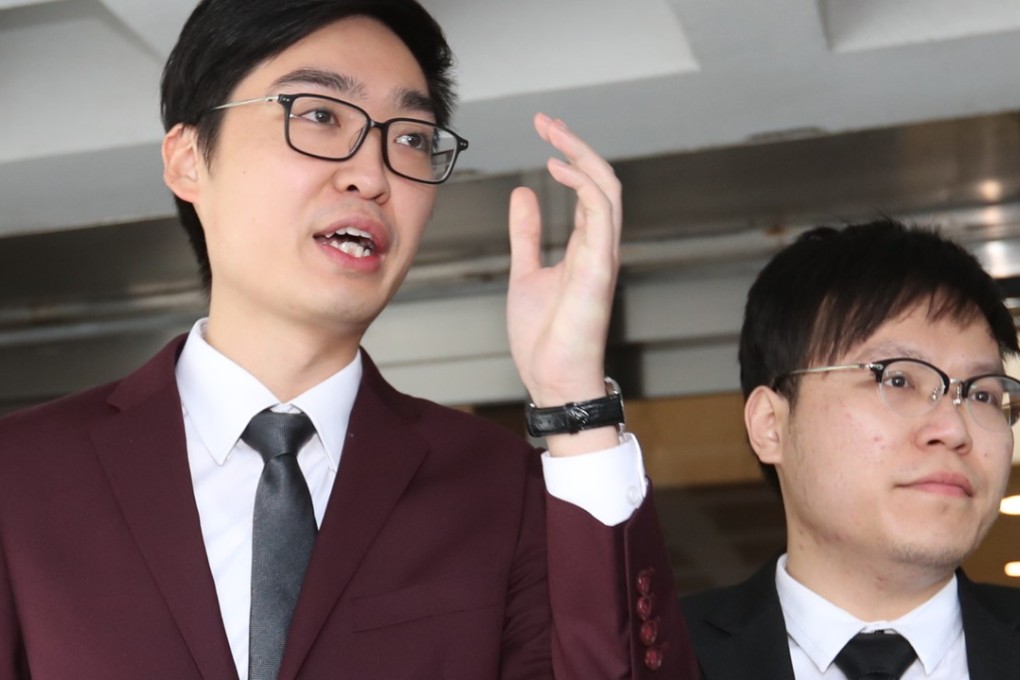Advertisement
Are Hong Kong civil servants overstepping their powers in banning election candidates?
Pro-independence activist to hear on Tuesday the outcome of a court petition he lodged arguing returning officers exceeded their powers disqualifying him from 2016 Legco poll
Reading Time:6 minutes
Why you can trust SCMP

Eighteen months after he set off a media scrum outside Hong Kong’s High Court, pro-independence activist Andy Chan Ho-tin is set to return to the limelight.
Advertisement
On Tuesday, he will hear the outcome of an election petition he lodged in September 2016, challenging the decision to ban him from contesting that year’s Legislative Council election.
Back then, the lanky former student protester was barred by the returning officer. The officer was not convinced the pro-independence hardliner was sincere when he signed a declaration pledging to uphold the Basic Law, the city’s mini-constitution, which states Hong Kong is “an inalienable part of China”. Four others, including pro-independence activist Edward Leung Tin-kei, were also banned in that election.

Chan, convenor of the Hong Kong National Party, argued in his legal submission that the officers had gone beyond their administrative powers to invalidate him. Leung also filed a petition but is still waiting for a legal aid application.
Advertisement
The ban sparked a political storm, as critics accused the government of unilaterally blocking candidates. But public anger was soon directed at a more dramatic development: six opposition lawmakers, two of whom advocated independence like Chan, were disqualified by the courts for sullying their oaths to take office. The Hong Kong government said they were insincere and therefore denigrated the Basic Law. The case prompted Beijing – which has a big say under the governing principle of “one country, two systems” – to issue a legal interpretation to set its position on oath-taking.
Hong Kong’s election ban may be legal, but the controversy will rumble on

Advertisement